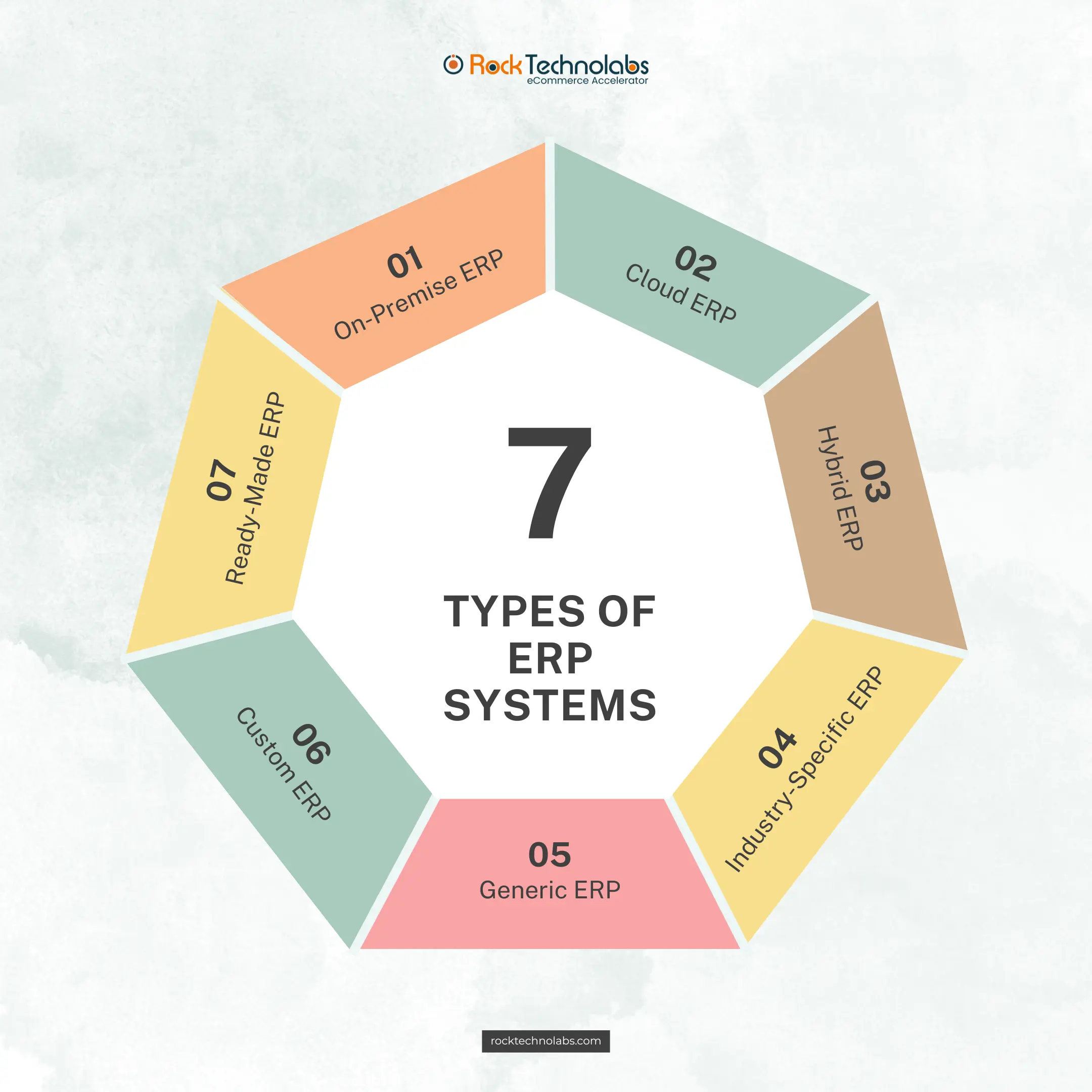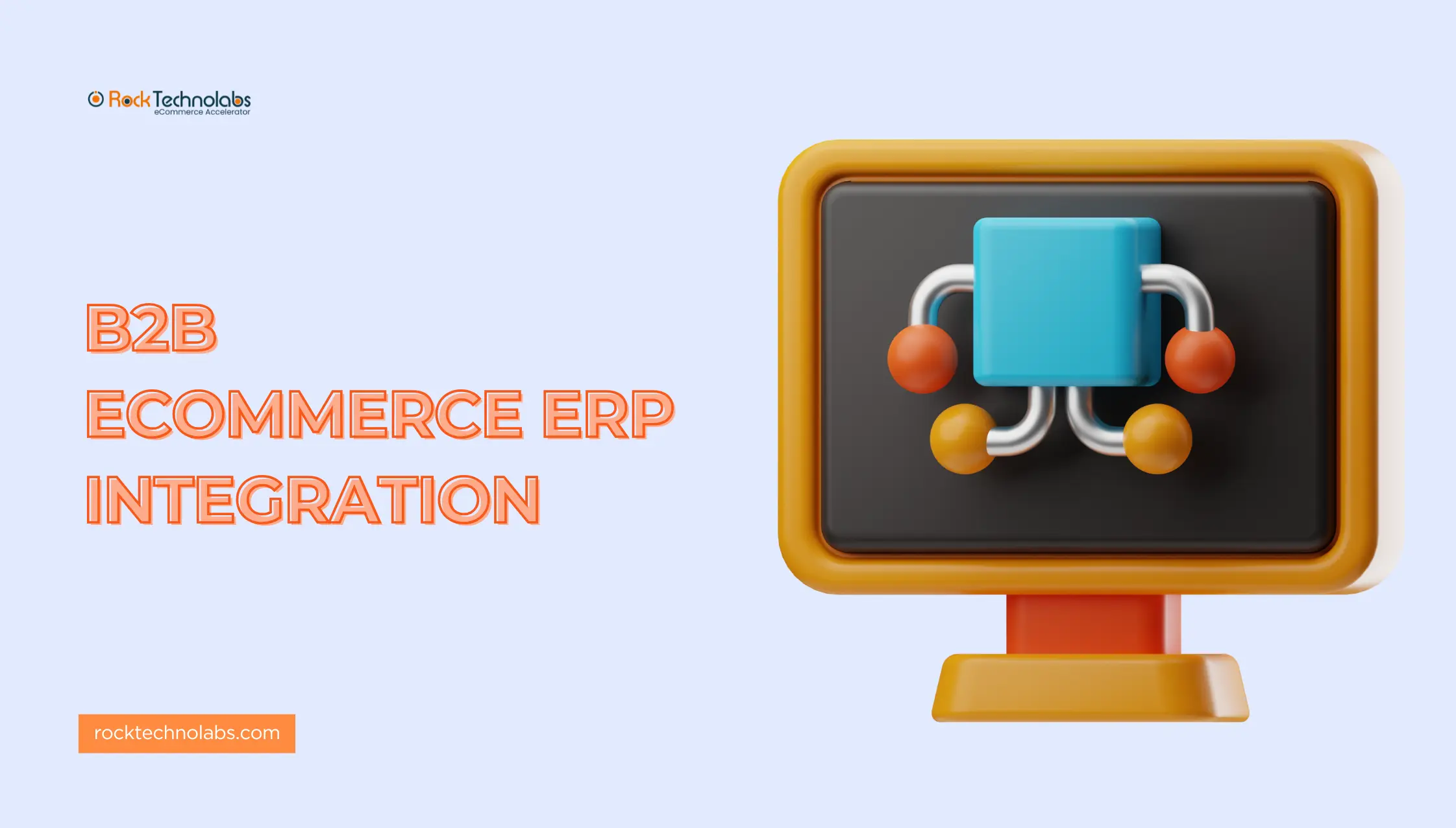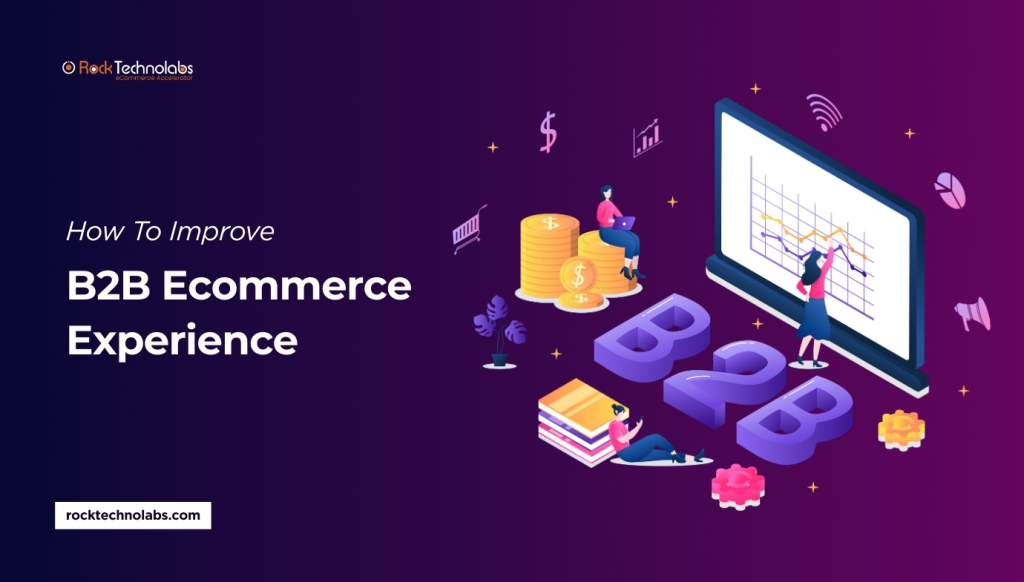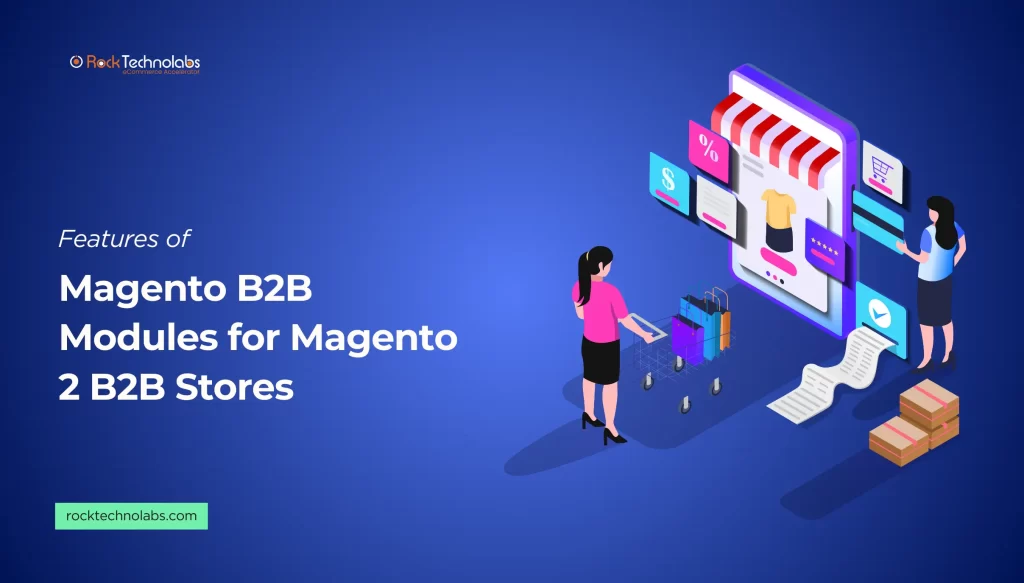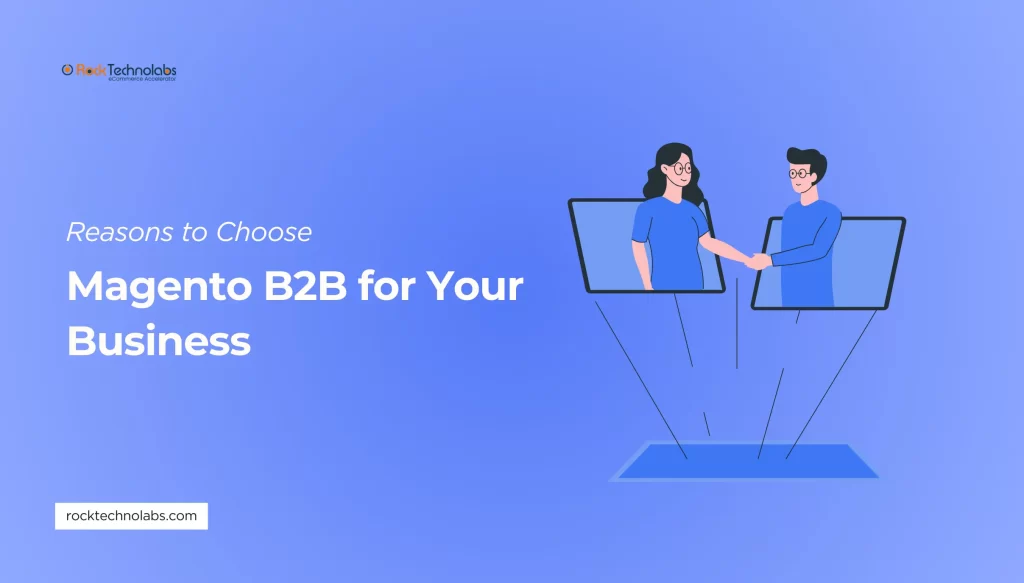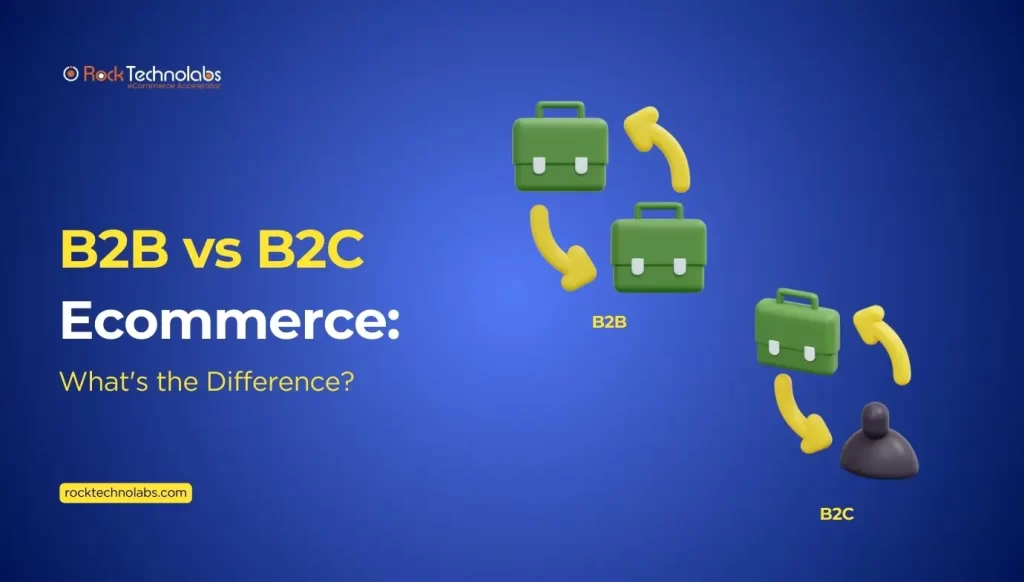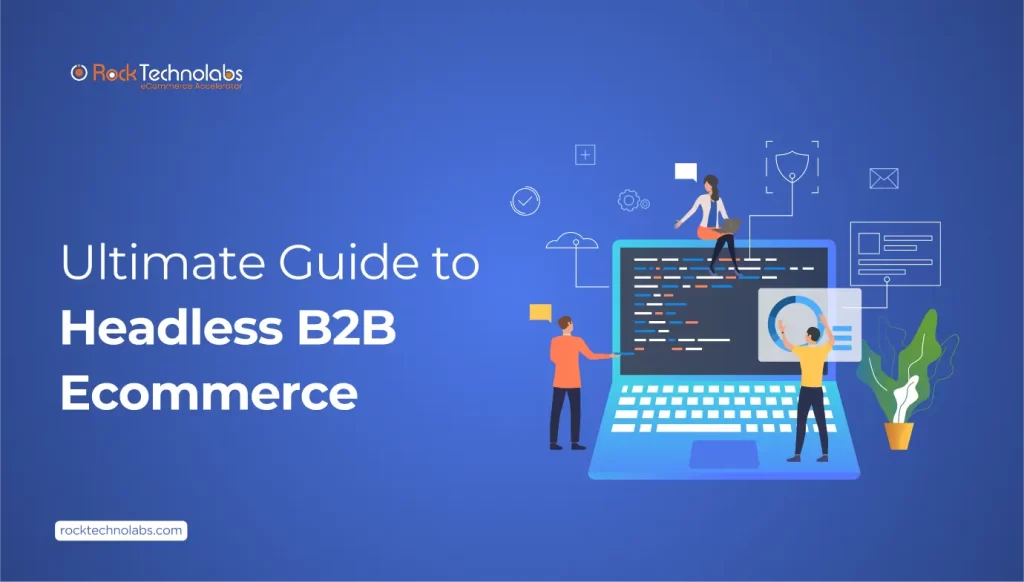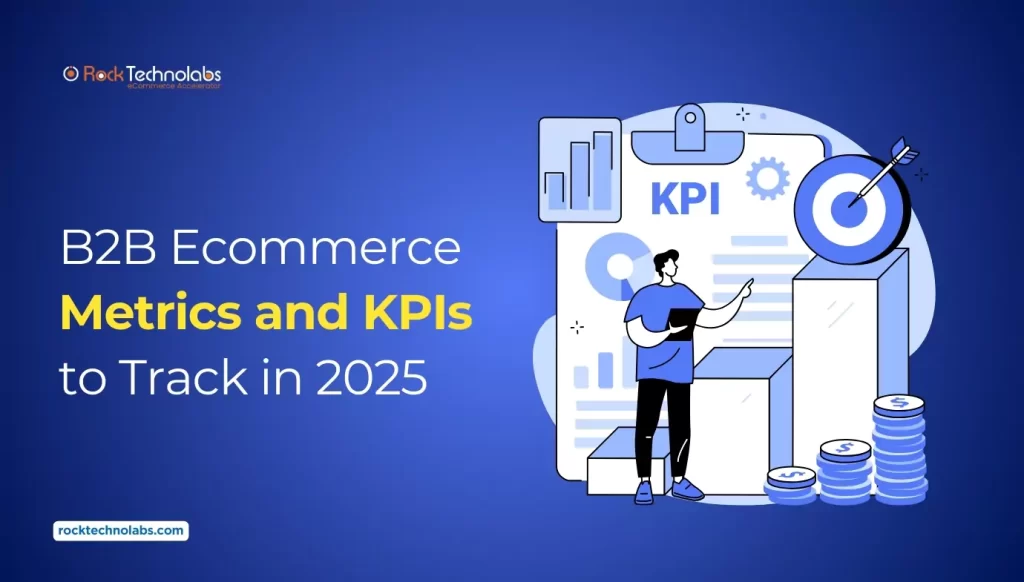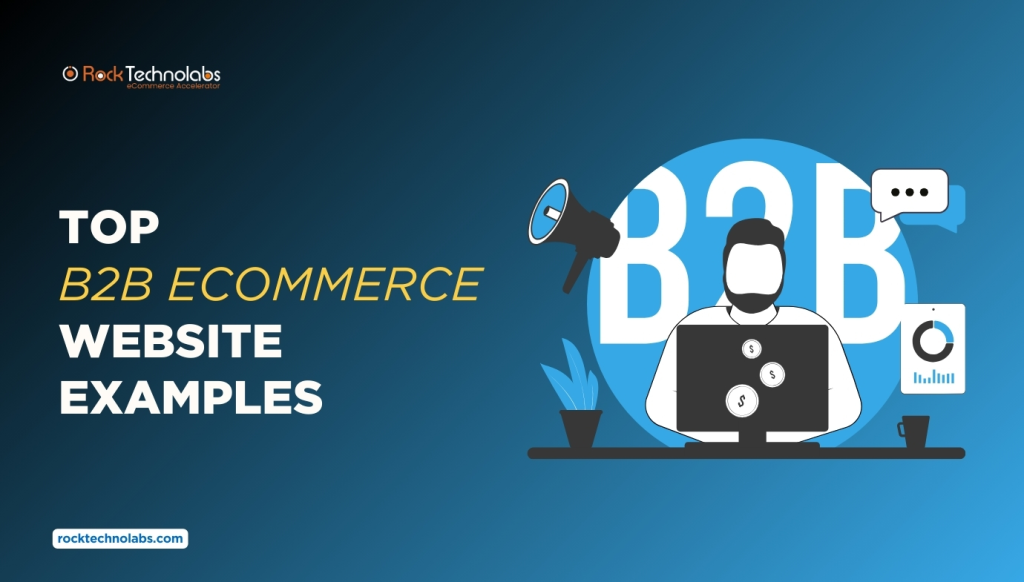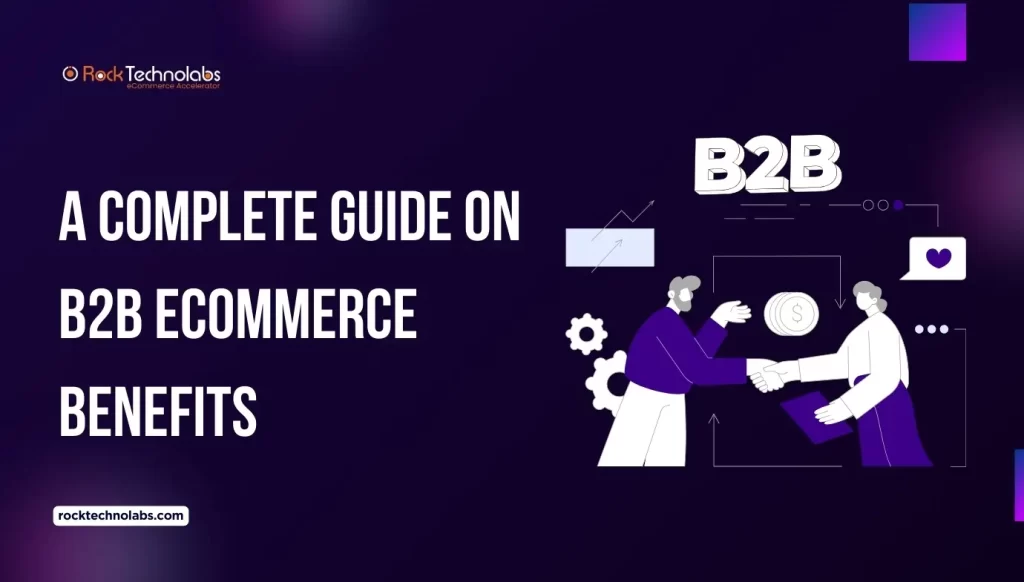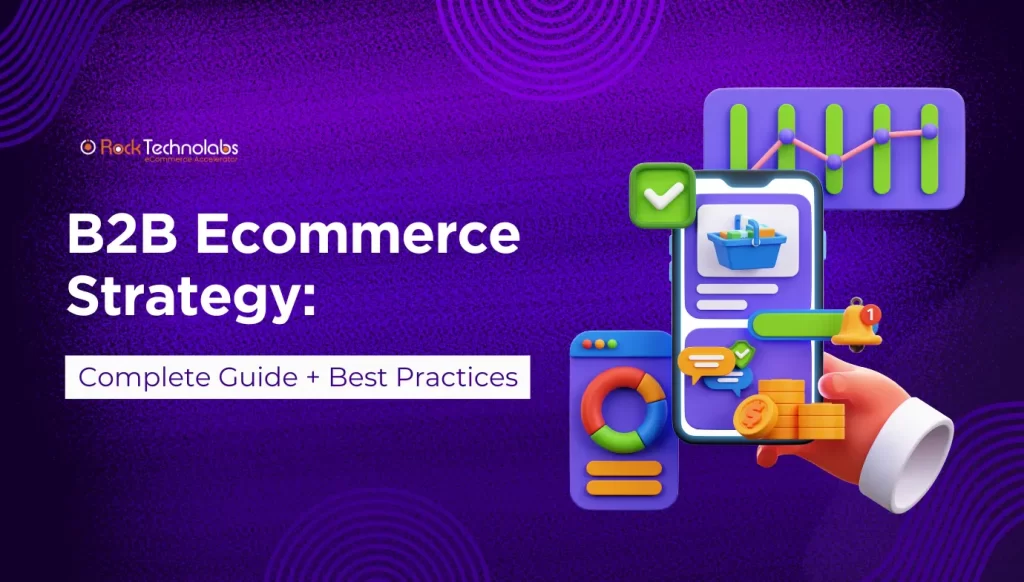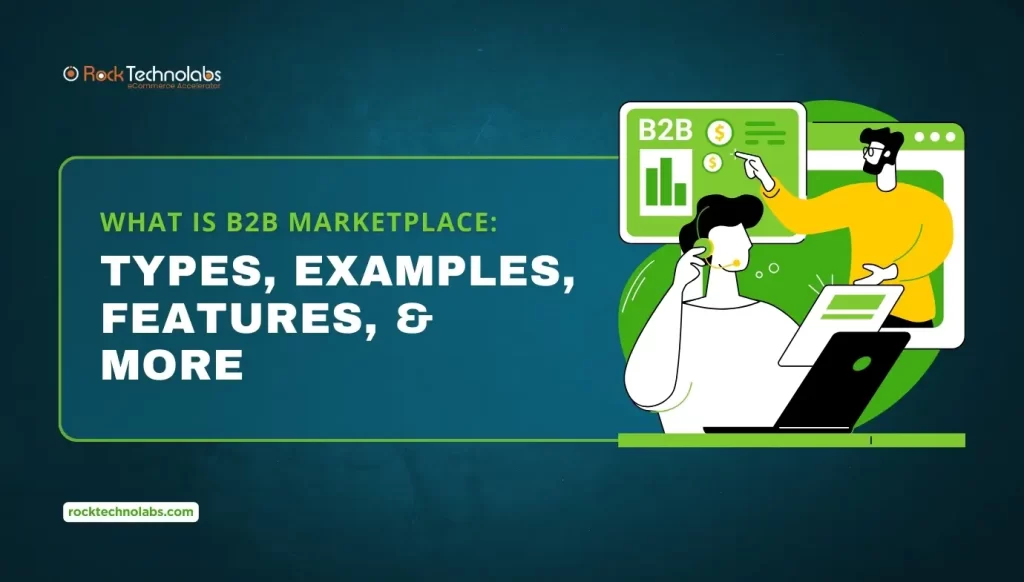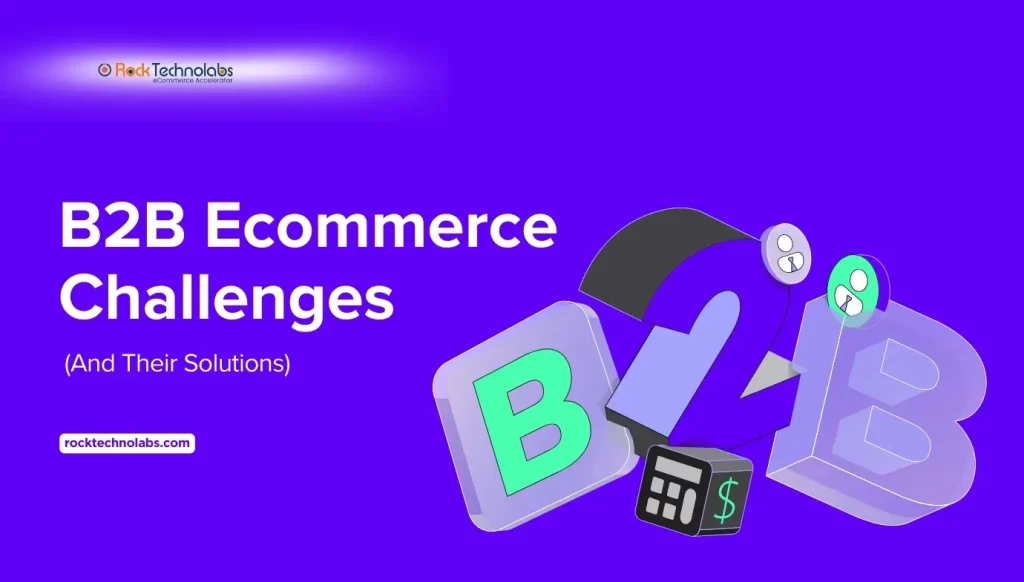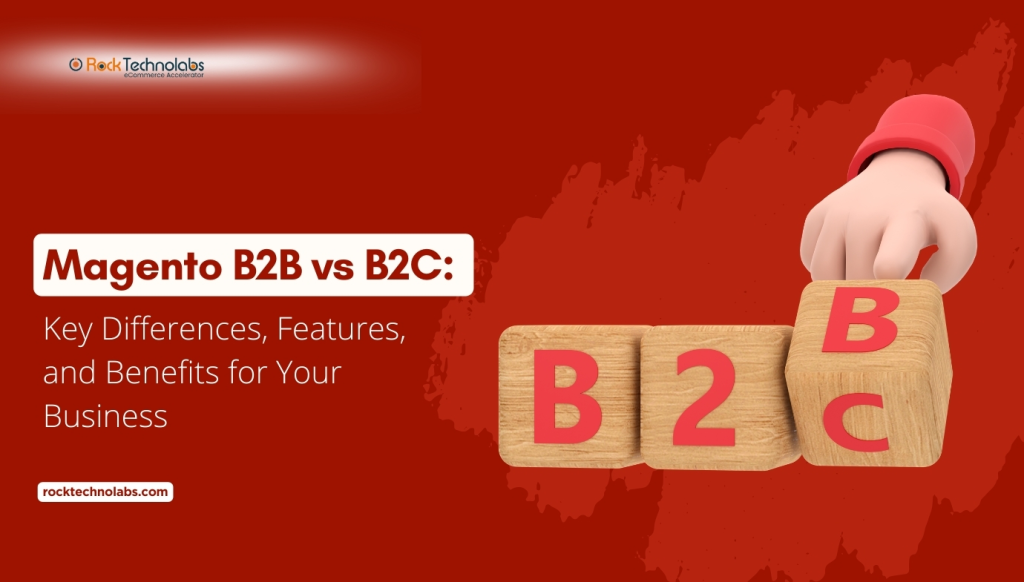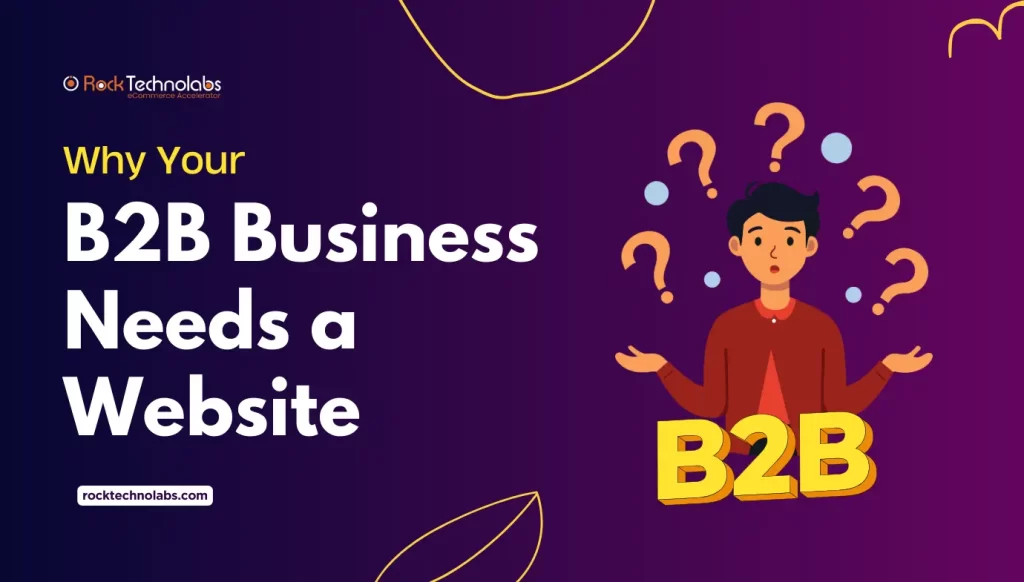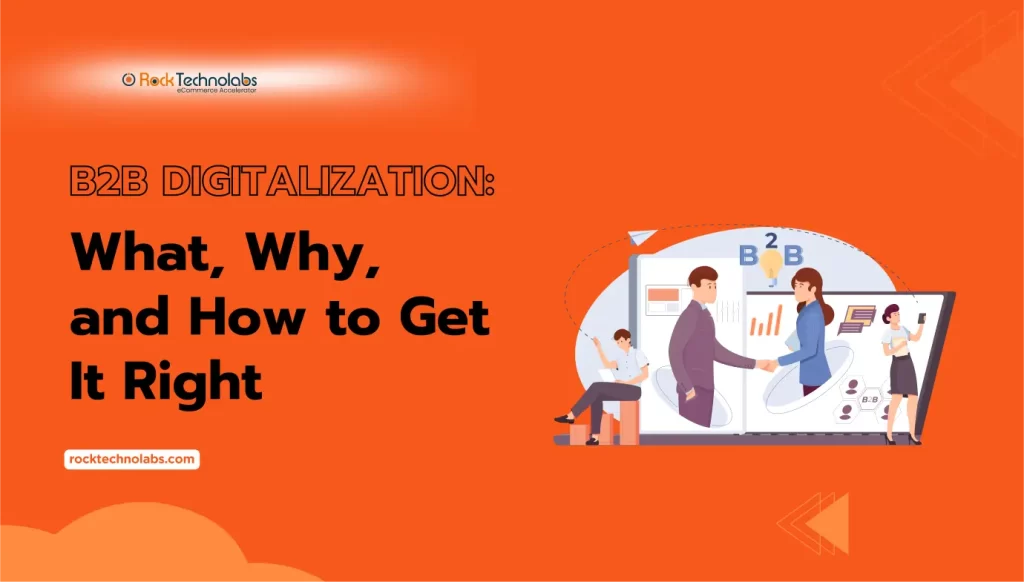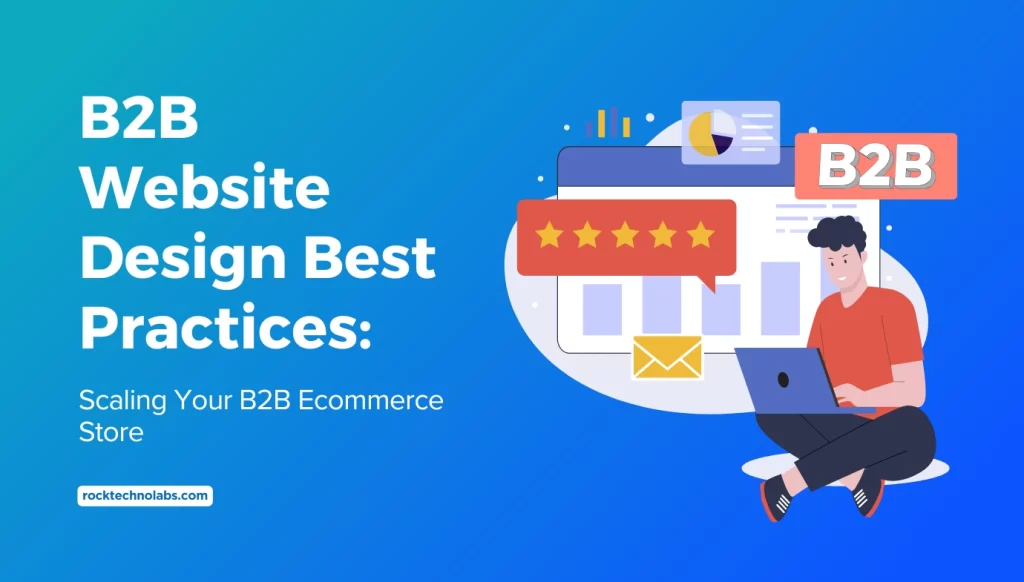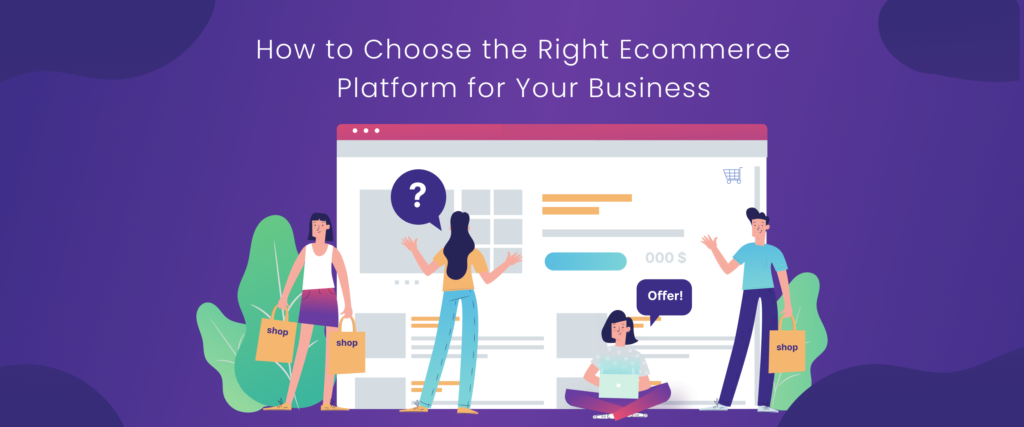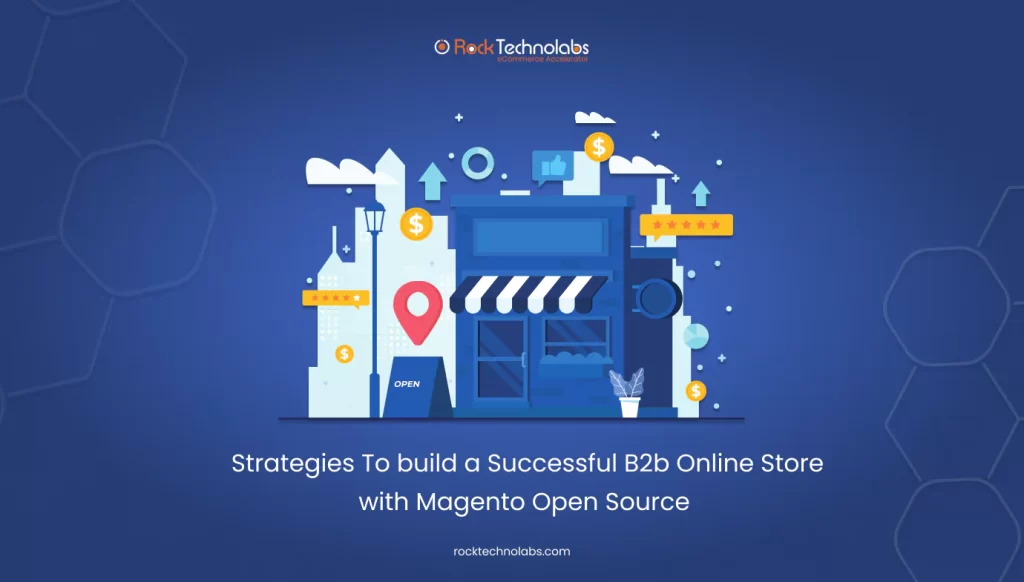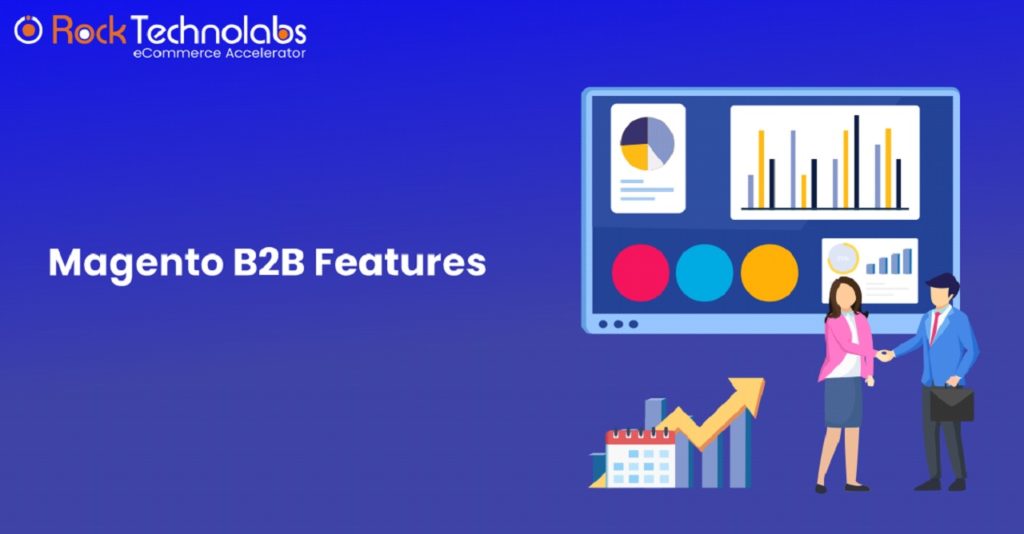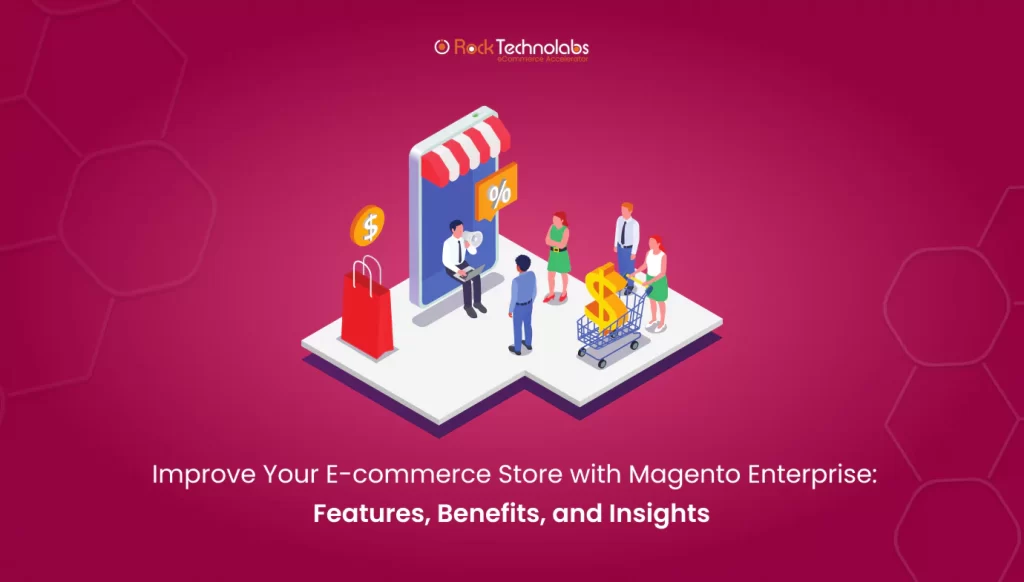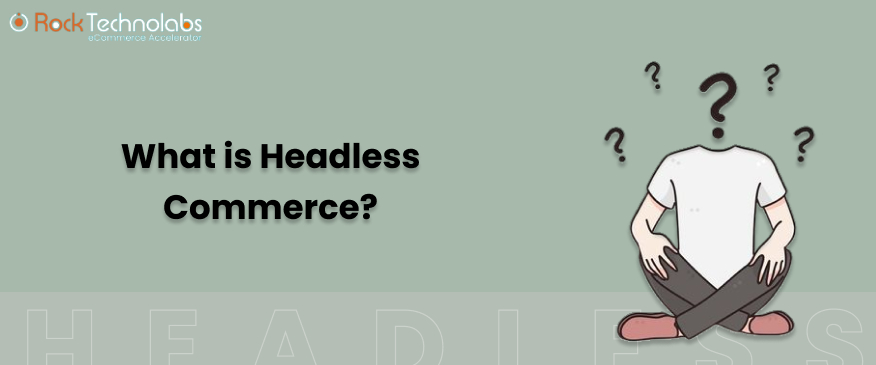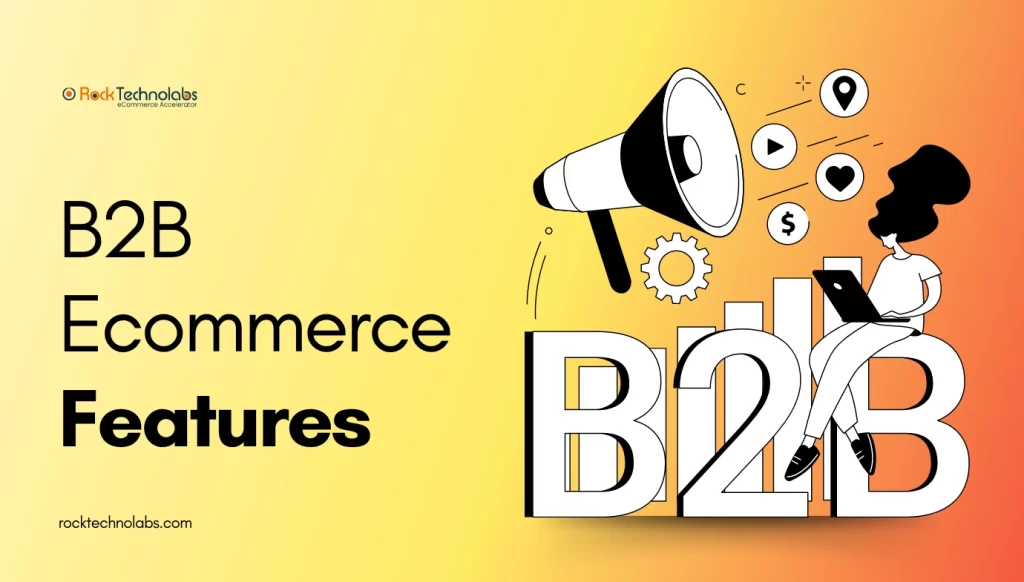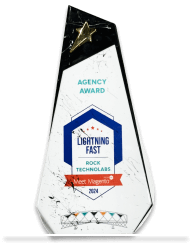Expansion in the B2B ecommerce market requires ongoing innovation and adaptation.
If your company is not keeping up with technology, incompetence will delay growth and limit scalability.
B2B businesses need to adopt solutions that improve decision making and manage operations easily. One of the most effective tools for this is ERP – Enterprise Resource Planning, a system that integrates and simplifies core business processes, from inventory and order management to finance, reporting, and customer information.
Effortless B2B eCommerce ERP integration is the secret to keeping pace while growing. This integration allows businesses to synchronize their eCommerce platforms with ERP systems, synchronizes real-time data across all channels – online and offline, eradicates human errors, increases automation, and makes the overall business more agile.
As predicted AI-powered ERP adoption would boom, and companies that implement ERP integration have a competitive advantage through better automation and real time intelligence.
Through data centralization and workflow automation, ERP integration provides a seamless experience both to your organization and customers, enabling efficiency, precision, and long-term development.
In this blog, we will explore B2B ERP integration, its benefits, challenges, and types of ERP systems to help you understand its impact on your business.
What is ERP Integration?
ERP (Enterprise Resource Planning) integration is the process of connecting an ERP system with other business applications, such as eCommerce platforms, CRM software, and B2B commerce systems.
An ERP integration allows the exchange of data between various systems without manual entry and reduces errors.
For companies, the integration of ERP plays an important part in managing customer data, orders, payments, and inventory easily. Businesses will experience irregular data, and delays without an ERP ecommerce integration, and that may hamper business growth and satisfaction.
Adaptability and tailoring customer experience are the norms of success now for the future. Companies employing eCommerce ERP software get an added advantage of reduced operational complexity through streamlined operations, proactive customer insight, and optimized order management.
For B2B companies, ERP integration is crucial in the efficient management of contract clients.
It allows customers to order through dedicated portals that retain necessary information such as order history, delivery schedules, purchase agreements, SLAs, and tailored pricing – avoiding manual intervention and errors.
With automated invoicing in sync with contract terms, companies can improve operational efficiency while providing a seamless experience to clients.
By centralizing data and automating workflows, eCommerce ERP revolutionizes how companies work, building more valuable customer relationships and driving long term growth.
Types of ERP Systems

While talking about ERP integration B2B, it is important to understand the various types of ERP systems available in the market.
The most common list includes:
| Types of ERP Systems | Description |
| On-Premise ERP | - Installed on local servers and managed internally
- Offers high customization but requires significant IT resources
- Examples of On-Premise ERP: SAP ERP, Microsoft Dynamics AX
|
| Cloud ERP | - Hosted on the cloud and accessible from anywhere
- Reduces IT costs and enhances scalability
- Examples of Cloud ERP: SAP Commerce Cloud, NetSuite, Microsoft Dynamics 365
|
| Hybrid ERP | - A combination of on-premise and cloud solutions
- Provides flexibility and security while leveraging cloud capabilities
|
| Industry-Specific ERP | - Tailored for specific industries such as manufacturing, retail, or healthcare
- Includes industry specific functionalities
|
| Generic ERP | - Provides a wide range of functionality for organizations across multiple industries
|
| Custom ERP | - Built by your chosen ERP development company according to your exact requirements.
|
| Readymade ERP | - Readymade or Off-The-Shelf ERP is a pre-built ERP software.
|
ERP and B2B eCommerce Integration Challenges to Watch Out
While eCommerce integration with ERP provides numerous benefits, it also presents challenges, including:
1. Data Synchronization Issues
One of the biggest technical challenges in ERP and B2B eCommerce integration is ensuring data consistency across both platforms.
Issues include:
- Delayed Data Updates: Orders, inventory, and pricing may have real time sync issues, leading to differences.
- Duplicate Data: If the systems don’t communicate properly, duplicate entries or incorrect data may appear.
- Data Format Mismatches: Different platforms use different data structures, leading to errors during integration.
Solution:
- Implement real time API synchronization for order processing, pricing, and inventory.
- Use data validation rules to ensure uniformity before syncing.
- Employ a centralized data management system to reduce inconsistencies.
Further Reading: 10 Challenges of B2B Ecommerce (+ How to Solve Them)
2. Complex System Compatibility
Legacy ERP systems may not be compatible with modern eCommerce platforms.
Custom development and middleware may be needed to bridge the gap.
Many businesses still use outdated ERP systems that were not designed for modern digital commerce.
Challenges faced:
- Lack of API Support: Legacy ERP systems lack APIs or webhooks, which makes them hard to integrate with ecommerce sites.
- Inflexible Architecture: Legacy systems demand heavy customization or middleware to add new features.
- High Upgrade Costs: Upgrading or replacing an outdated ERP system is expensive and time consuming.
- Slow Performance: Older ERP systems may struggle to handle large data volumes and real time interactions required by modern B2B eCommerce.
Solution:
- Use middleware or integration platforms to connect legacy ERP with eCommerce platforms.
- Slowly transition to a cloud-based ERP solution that offers better scalability and integration flexibility.
Recommended Read: Why Your B2B Business Needs a Website
3. Customization and Scalability Issues
- Many businesses require customized ERP workflows, making integration complex.
- While scaling the integration as the business grows can require additional investment and resources.
4. Security Issues
As ERP and B2B eCommerce deal with sensitive customer and business information, security and compliance with regulations is essential.
Challenges faced:
- Data Privacy Regulations: Companies must comply with the General Data Protection Regulation and other regional security regulations.
- Cybersecurity Threats: Connected systems are attractive targets for cyber attackers.
Solution:
- Implement end-to-end encryption and secure API connections.
- Use role-based access control to limit user permissions.
- Conduct regular security audits and vulnerability assessments.
5. Real-Time Order and Inventory Management
- Delays in order processing and inventory updates can lead to overselling or stockouts.
- Achieving real time updates without system lags is a major challenge.
6. Ensuring Data Accuracy During Migration
When migrating from an old system to a new ERP integrated eCommerce platform, assuring data accuracy is important.
Challenges faced:
- Incomplete or Corrupted Data: Errors can occur while transferring large volumes of data from old databases.
- Lost Transactional History: Past order and customer history might not transfer properly.
- Manual Data Entry Risks: If manual entry is required, human errors can lead to incorrect customer details, orders, or financial records.
Solution:
- Conduct data cleansing before migration to remove duplicates and outdated records.
- Use automated data migration tools to ensure accuracy.
- Perform rigorous testing and reconciliation post migration to verify data integrity.
7. Integration Costs and Time Consuming Implementation
- ERP integration requires significant upfront investment and ongoing maintenance.
- The implementation process can take months, depending on business complexity.
8. B2B Payment and Taxation Complexity
- Handling multiple payment methods, tax regulations, and invoicing can be tough.
- Guaranteeing smooth transaction processing between ERP and eCommerce platforms is important.
9. User Training and Change Management
- Employees need proper training to adapt to the integrated system.
- Resistance to change can slow down adoption and efficiency.
Benefits of eCommerce ERP integration
Integrating ERP systems with eCommerce platforms offers several advantages, including:
1. Automated Data Flow
- Eliminates manual data entry errors
- Ensures real-time order processing and inventory updates
2. Enhanced Customer Experience
- Faster order fulfillment and accurate inventory levels
- Personalized pricing and product recommendations for B2B sales
3. Improved Inventory Management
- Helps businesses maintain optimal stock levels
- Reduces overstocking and stockouts
4. Better Financial Management
- Streamlines accounting and invoicing
- Integrates B2B payments for seamless transactions
5. Scalability and Growth
- Supports business expansion by handling increased sales volume
- Easily integrates with new sales channels and B2B platforms
Explore More About: B2B Ecommerce Benefits
FAQs about B2B eCommerce ERP integration
1. What is B2B Ecommerce ERP Integration?
B2B eCommerce ERP integration is the linking of eCommerce websites with ERP systems to streamline order related data, inventory data, customer data, and payments.
The integration provides greater business efficiency and real time accurate information.
2. Do all ERP systems support B2B ecommerce integration?
No, not every ERP system has B2B eCommerce integration out of the box.
There are some that need custom API programming or middleware solutions to integrate with b2b eCommerce websites such as Magento, SAP Commerce Cloud, and Salesforce.
3. What is the difference between ERP and CRM Integration?
Whereas both ERP integration and CRM integration enhance business effectiveness, they have different functions:
- ERP (Enterprise Resource Planning): Controls finances, supply chain, inventory, and B2B commerce business operations.
- CRM (Customer Relationship Management): It emphasizes sales, customer interactions, and marketing automation.
CRM ERP integration ties the two systems together to give a complete picture of customer and business operations.
Get Started With B2B Ecommerce ERP Integration By Partnering with Rock Technolabs!
B2B integration with ERP is crucial for companies to maximize efficiency, reduce space for mistakes, and customer satisfaction.
Companies integrate eCommerce platforms with ERP solutions, which facilitate real time data synchronization, effective B2B sales, and optimization of B2B payments.
For businesses seeking to have smooth eCommerce ERP integration, choosing an appropriate ERP software, commerce platform, and CRM system is required.
With SAP ERP, Microsoft Dynamics, or Magento B2B, having a perfect integration process can be the difference between your business growth and customer satisfaction.
Rock Technolabs, as an Adobe Bronze Solution Partner with 10+ years of expertise in digital commerce, provides Magento ERP integration services to businesses of all sizes, we empower companies to eliminate operational silos, automate workflows, and deliver exceptional B2B customer experiences.
Contact us today to explore how our dedicated ERP solutions specialists can transform your B2B operations.
Your trusted partner in ERP-eCommerce since 2016.
